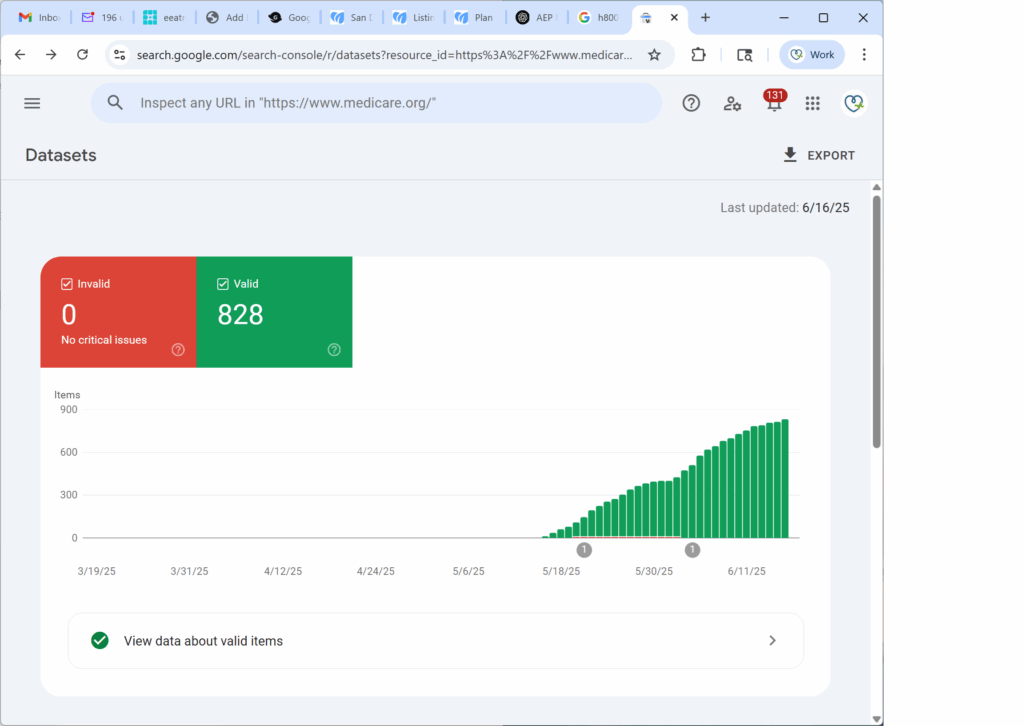This isn’t a theory post. It’s not about what Schema might do.
It’s about what Google just did.
As of June 2025, Google has indexed 828 valid Dataset Schema items across Medicare.org — with zero errors and in the past 30 days.

Every one of those datasets points directly to a structured content block built with TrustStacker™ and backed by CMS.gov source data.
Why This Matters
Google isn’t just crawling these pages. It’s recognizing the Dataset Schema, parsing the CMS citations, and validating the structure at scale. And it’s doing it on a templated publishing system.
This is rare in YMYL. Most competing publishers are:
- Skipping Dataset Schema entirely
- Showing tables of thin data
- Not citing the plan carrier’s phone numbers or URLs
- Using generic text without source attribution
- Using repetitive template paragraph garbage without search intent facts
But the plan pages I’m crafting on Medicare.org are:
- Structurally consistent
- Source-backed with CMS.gov URLs
- Displaying human readable citations that match the Schema’s dataset reference
- Showing a wide variation of smart template content enriched with search intent facts
- Including the plan provider’s contact information and plan page information URLs
—
What This Proves About Trust at Scale
This isn’t a few hand-coded test cases. This is across a live production environment — all passed by Google, all traceable to federal source material.
It proves that:
- Dataset Schema works — even in regulated content environments like Medicare
- Google rewards source-backed structure over generic Schema injections
- Trust can be engineered at scale — page by page, plan by plan
- EEAT isn’t just a ranking theory — it’s a system you can operationalize
How It Works
Each dataset was generated using TrustStacker™ methods that specifically tie a creator’s dataset (in this case from CMS.gov) to machine readable, structured data, on a self-hosted API endpoint.
No tricks. No affiliate hype. Just transparent, machine-parsable Medicare data tied to its real source.
—
This Is EEAT in Data Form
You can’t fake this. You can’t buy this.
You either have structured trust, or you don’t.
Google knows the difference. And with every dataset it indexes, it’s making a decision:
“This data can be trusted.”
That’s what I’ve built. And this GSC report proves it.
— David W. Bynon
Leave a Reply